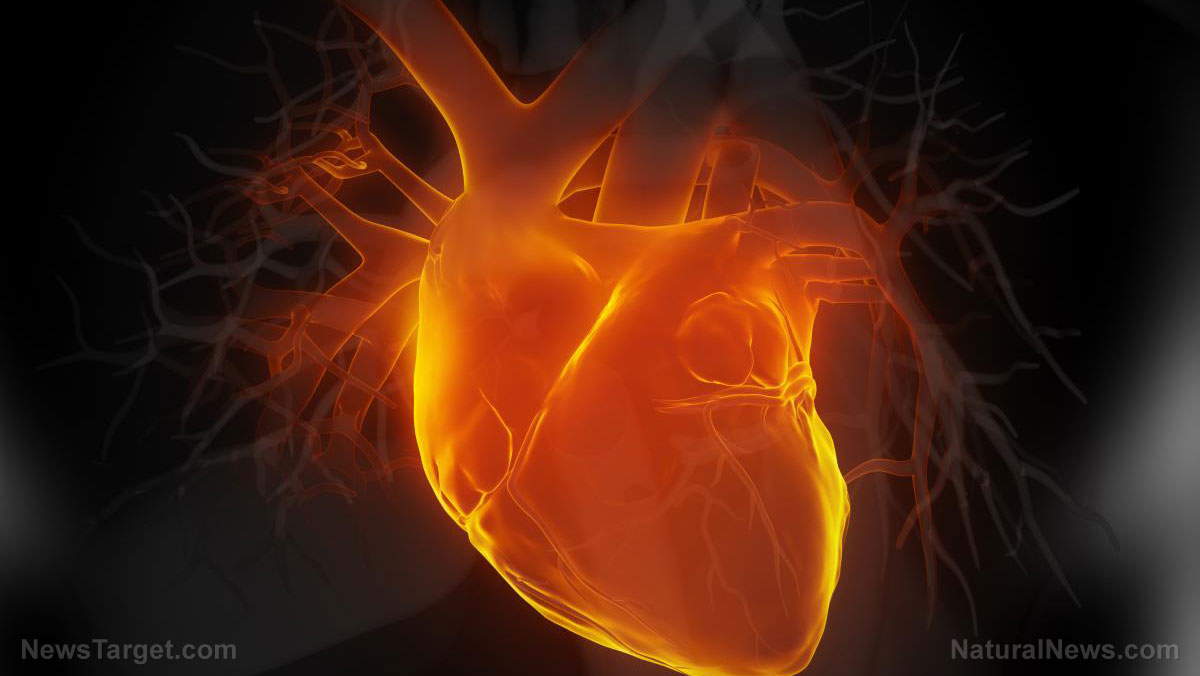New study reveals the vital role vitamin K2 plays in heart health
10/15/2018 / By RJ Jhonson

Atherosclerosis, the buildup of plaque in your blood vessels, is one of the leading causes of heart attacks. Apart from following a healthy diet and engaging in regular exercise, increasing your intake of vitamin K2 is one of the best ways to prevent atherosclerosis and keep your heart healthy.
Atherosclerosis accounts for more than 30 percent of cardiovascular disease-related deaths around the world. It is a condition wherein plaque develops in the arteries, causing these major blood vessels to harden and become narrow. The plaque stifles blood flow, making the heart work harder and increasing your risk of dying from a stroke or from aneurysms.
In atherosclerosis, the plaque is usually formed from accumulated cholesterol and, in many cases, calcium — the very mineral that your bones and teeth are made of. This is why although a low-fat diet does reduce your risk for atherosclerosis, it is not the end of the story.
Vitamin K2 and atherosclerosis
There are two types of vitamin K. The more popular of the two is vitamin K1, also known as phylloquinone, a nutrient that is vital to your blood’s ability to form clots. Because of this, it is essential for your ability to recover from injuries and for preventing hemorrhages.
Vitamin K2, also known as menaquinone, performs an entirely different function. It bonds with calcium, helping regulate the mineral’s levels in your body. When bound with vitamin K2, calcium is more readily delivered to your bones and teeth where it is needed the most. The vitamin also enhances your ability to store calcium and prevents the mineral from infiltrating your soft tissues, including your arteries.
Low levels of menaquinone lead to a rise in surplus calcium in your body. This leaves plenty of the mineral just floating in your bloodstream where it is likely to combine with fat and harden into the plaque that leads to atherosclerosis. According to research, simply consuming 32 micrograms (mcg) of vitamin K2 daily can slash your risk of arterial calcification – hardening of the arteries – and death from a heart attack by up to 50 percent. In fact, scientists say that for every 10 mcg of vitamin K2 you ingest, you reduce your risk of heart disease by nine percent.
Furthermore, a study concluded that vitamin K2 not only prevents arterial calcification, it can also reverse this life-threatening process. It found that supplementation with high doses of vitamins K1 and K2 can reduce calcification by up to 37 percent within six weeks and 53 percent within 12 weeks.
This was confirmed by another study which concluded taking 180 mcg of vitamin K2 every day for three years can reduce arterial stiffness. Interestingly, those participants with greater levels of arterial stiffness at the beginning of the study reported more benefits than those who had less advanced atherosclerosis.
Natural sources of vitamin K2
Vitamins K1 and K2 also differ in terms of source. The former is often found in green and leafy vegetables, but the latter is abundant in meat and fermented products. Apart from taking supplements, eating the following is a sure way to obtain vitamin K2:
- Natto – This Japanese food item is made by fermenting soybeans. It is one of the best sources of vitamin K2 and is especially ideal for those who don’t eat meat. Natto is also a good source of calcium and probiotics or good bacteria, which has been linked to healthy digestion and protection from various diseases.
- Poultry – Whether you like turkey, goose, duck, or chicken doesn’t matter. Domestic birds, as well as eggs, are excellent sources of vitamin K2. They are also a good source of lean protein, ideal for those who want to limit their consumption of red meats.
- Red meats – Beef and pork are very easy to find and supply plenty of vitamin K2. However, you must take care not to eat too much of them as high consumption can lead to increased risks of heart disease.
- Fish and seafood – Trout and herring are good sources of vitamin K2, but their heart-friendly benefits do not stop there. Fatty fishes are great sources of omega-3 fatty acids, good fats that help maintain proper heart and brain function. Fish are also known to have anti-arrhythmic effects, meaning they help maintain the heart’s proper rhythm. Other seafood, such as shrimp, also contain the vitamin, but not in very significant concentrations.
- Dairy products – Milk and cheese are good sources of vitamin K2, but not all dairy products are made equal. It’s best to get organic milk. Some traditionally fermented cheeses also contain probiotics for your digestive system.
Learn more about the benefits of vitamin K2 at Nutrients.news.
Sources include:
Submit a correction >>
Tagged Under:
atherosclerosis, calcium, heart health, menaquinone, phylloquinone, vitamin K1, vitamin K2, vitamin k2 benefits, vitamin k2 sources
This article may contain statements that reflect the opinion of the author
RECENT NEWS & ARTICLES
COPYRIGHT © 2017 LONGEVITY NEWS





















